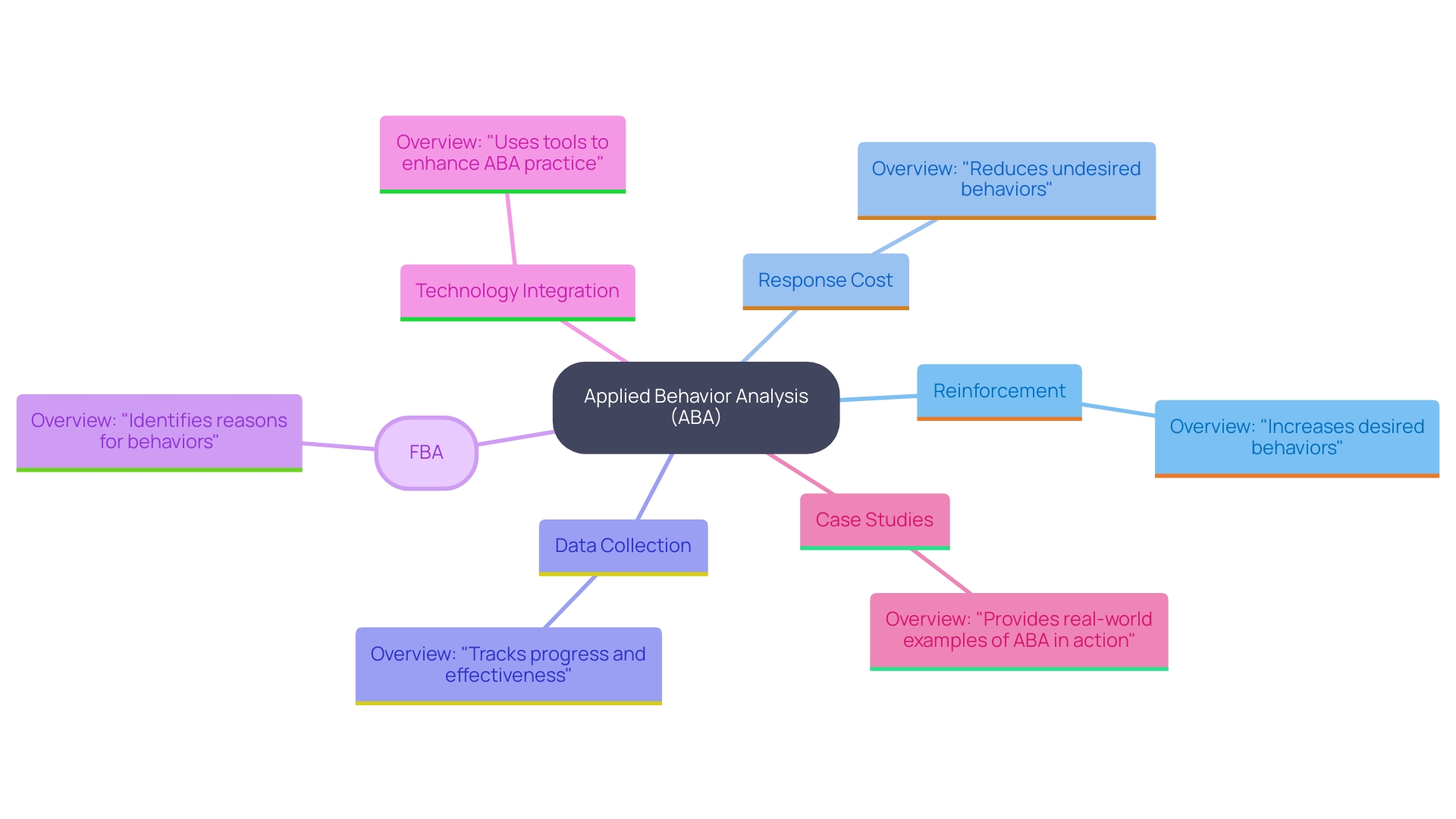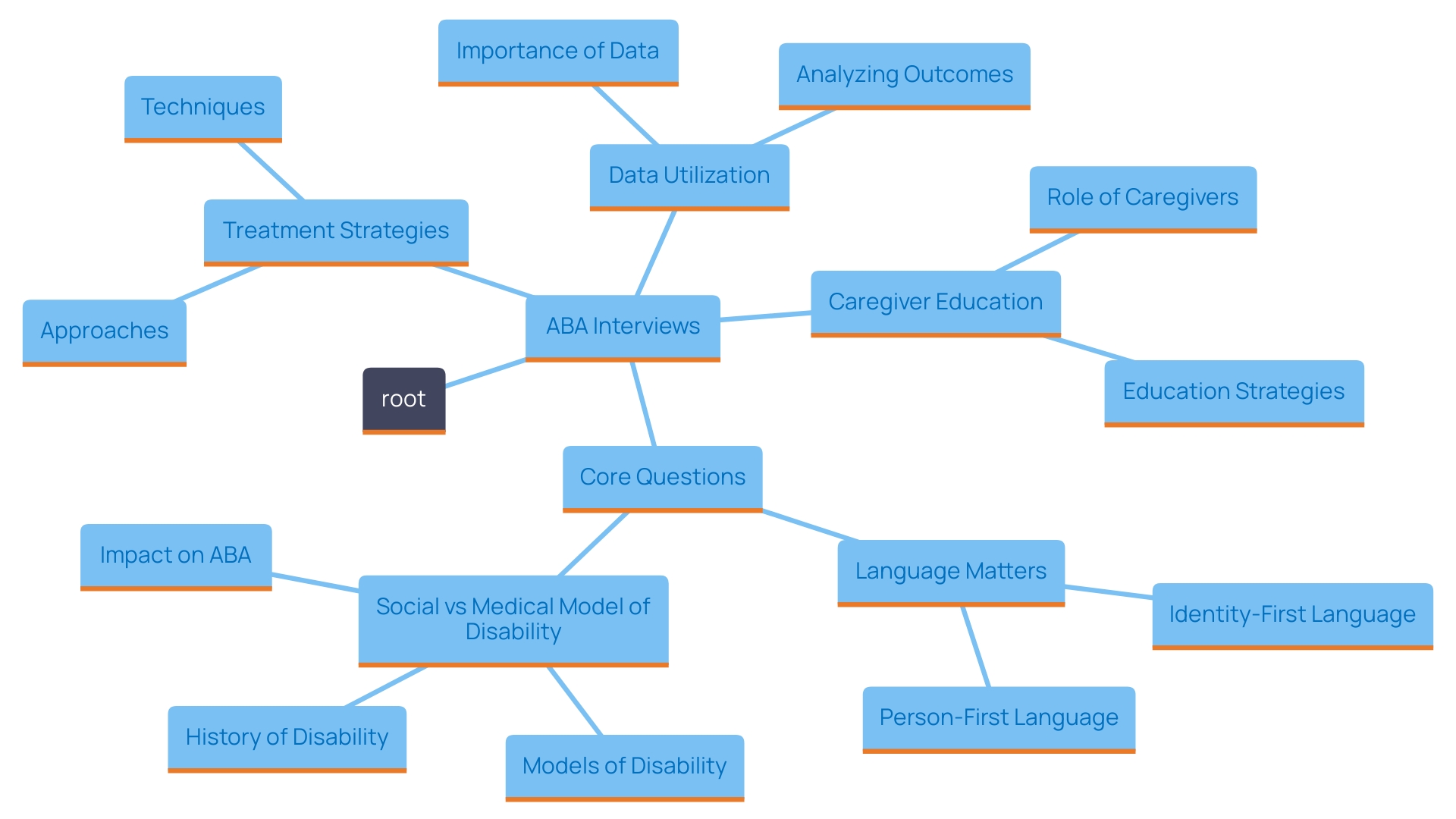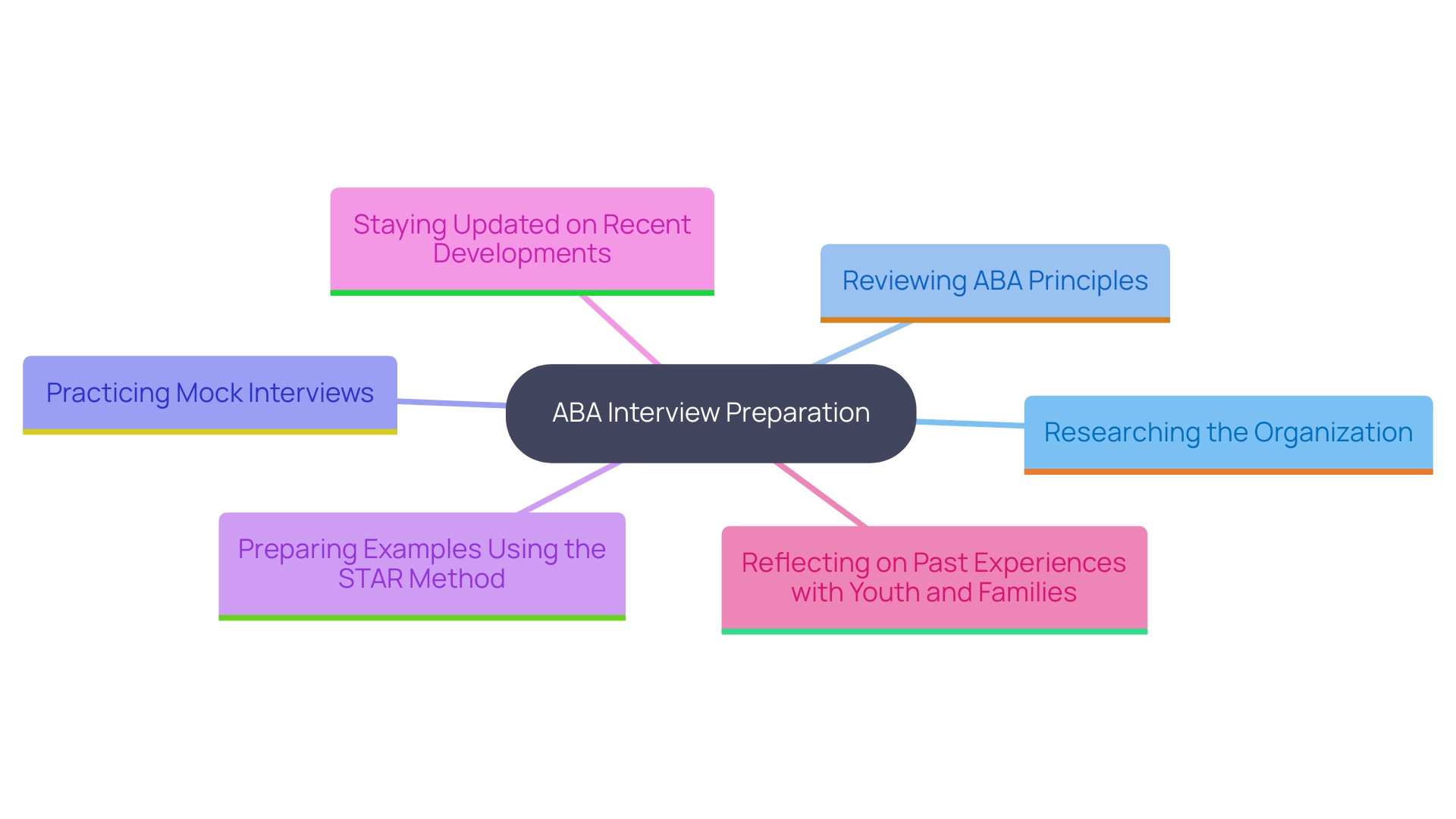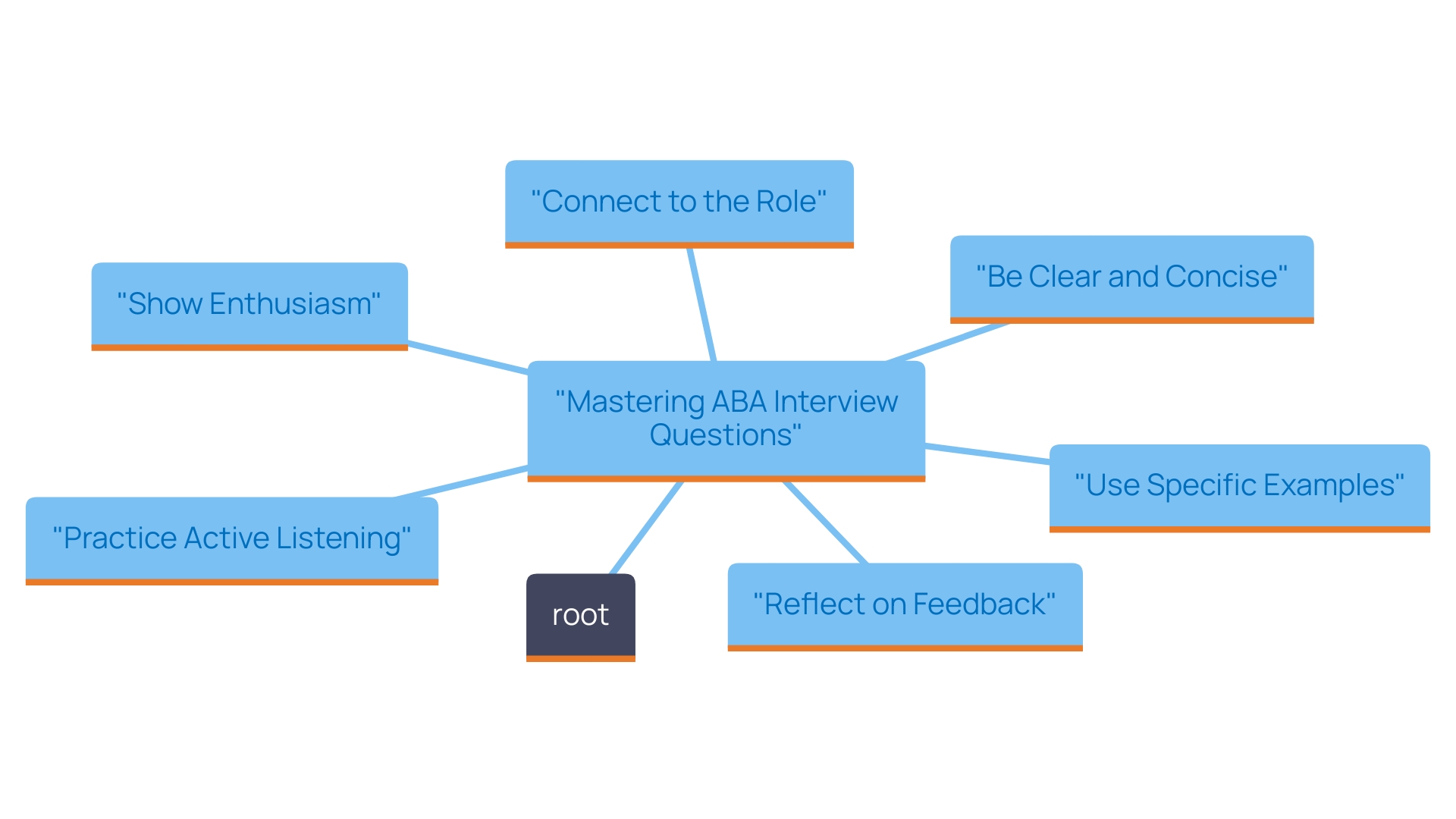In the realm of Applied Behavior Analysis (ABA), understanding the foundational concepts and preparing for interviews are crucial for success in supporting children with autism spectrum disorder (ASD). ABA is a scientifically grounded approach that emphasizes the modification of behavior through systematic interventions, making it essential for practitioners to grasp key principles like reinforcement, response cost, and data collection. As the demand for skilled ABA professionals continues to grow, prospective candidates must equip themselves with the knowledge and strategies necessary to excel in interviews.
This article delves into the core tenets of ABA, explores common interview questions, and outlines effective preparation techniques to empower candidates in their pursuit of impactful careers in this vital field.
Applied Behavior Analysis (ABA) is a scientific field focused on understanding and altering actions through systematic interventions. It functions on the principle that actions are learned and can be modified, making it especially effective for managing symptoms of children with autism spectrum disorder (ASD). A key concept within ABA is response cost, which refers to the loss of a privilege or reward following an undesired action, helping to shape conduct by providing clear consequences.
Central to ABA is the principle of reinforcement, which involves increasing desirable actions by providing a reward after the desired action occurs. For example, a young person might receive commendation or a small reward for finishing a task, thus promoting the recurrence of the positive action. A practical illustration might be a young individual motivated to share toys; when they do so, they could receive a sticker, reinforcing the act of sharing. Conversely, punishment aims to reduce undesired behaviors through consequences, such as a loss of playtime for hitting a peer, fostering long-term behavior change.
Data collection is another critical aspect of ABA, allowing practitioners to track progress and make informed decisions about treatment plans. Recent advancements in ABA emphasize the importance of integrating technology for automatic data collection, ensuring that sessions are recorded while the clinical team remains focused on the child. All collected data is securely stored, anonymized, and deleted after analysis, enhancing confidentiality while maximizing therapy time. This systematic method guarantees that measures are customized to personal requirements and modified according to empirical evidence.
A crucial element of ABA is the Functional Behavior Assessment (FBA), a procedure that determines the causes behind particular actions and directs support strategies. For instance, recognizing that a young person's aggressive actions are a means to evade a difficult task can assist in creating more effective interventions customized to that individual's needs. Our behavior care engine performs functional behavior analysis for target behaviors and skills, creating automatic progress reports for clinician review and approval. This AI-driven automation enhances ABA therapy efficiency, freeing up to 50% more time for treatment of children.
The efficacy of these measures is backed by data, including a study where 68.7% of youth demonstrated . Expert Weiyi Liang from the Department of Rehabilitation at Peking University Shenzhen Hospital emphasizes the importance of systematically evaluating evidence to manage various symptoms of individuals with ASD effectively.
Case studies further illustrate the real-world application of ABA principles. One notable study involving the Picture Exchange Communication System (PECS) demonstrated significant progress in participants who used the system consistently, underscoring the practical benefits of ABA techniques. By equipping caregivers with knowledge and skills related to ABA principles and strategies, families can create a consistent and supportive environment, maximizing the intervention's impact. Understanding these key concepts, along with recent advancements in the field, is essential for anyone entering the realm of ABA, as they form the foundation for effective practice and are likely to be discussed during interviews.

Preparing for ABA interviews requires candidates to be ready to answer a variety of questions that highlight their understanding of and their ability to engage with youngsters and caregivers. Candidates should expect questions such as:
Being prepared to answer these questions can significantly enhance a candidate's chances of success in securing a position in the ABA field, especially as they reflect the importance of caregiver involvement and informed decision-making in promoting improved behavioral outcomes.

Preparing for an ABA interview requires thoughtful consideration of various strategies that align with the patient-centered and adaptable nature of Applied Behavior Analysis (ABA) therapy, which has proven effective for autism treatment. Here are key strategies to enhance your preparation:
By incorporating these strategies into your preparation, you will not only enhance your interview performance but also reinforce the importance of caregiver involvement in maximizing the impact of ABA therapy.

To master the art of answering ABA interview questions, consider these tips:
In conclusion, applying these strategies can enhance your interview performance and demonstrate your readiness to contribute positively to the field of ABA. Each tip not only prepares you for the interview but also aligns with the overarching goals of providing effective behavioral support.

Understanding the core principles of Applied Behavior Analysis (ABA) and effectively preparing for interviews are vital steps for anyone aspiring to make a significant impact in the field, particularly in supporting children with autism spectrum disorder (ASD). This article outlined the essential concepts of ABA, including reinforcement, punishment, data collection, and the importance of conducting Functional Behavior Assessments. By mastering these foundational elements, candidates can demonstrate their competence and readiness to engage in meaningful therapeutic practices.
In addition to grasping the theoretical aspects, candidates must also be prepared to handle common interview questions that assess their knowledge and practical experience. Strategies such as researching the organization, practicing mock interviews, and preparing specific examples using the STAR method can greatly enhance interview performance. These preparations not only showcase a candidate's qualifications but also emphasize the integral role of caregiver involvement in the therapeutic process.
Ultimately, success in ABA interviews hinges on a candidate's ability to articulate their understanding of ABA principles and their commitment to fostering positive behavioral changes. By equipping themselves with the right knowledge and preparation techniques, prospective ABA professionals can confidently navigate the interview process and position themselves as effective advocates for children and families in need of support.
What is Applied Behavior Analysis (ABA)?
Applied Behavior Analysis (ABA) is a scientific field focused on understanding and altering actions through systematic interventions, particularly effective for managing symptoms of children with autism spectrum disorder (ASD).
What is the principle of reinforcement in ABA?
The principle of reinforcement involves increasing desirable actions by providing a reward after the desired action occurs, such as giving commendation or a small reward for completing a task.
How does response cost work in ABA?
Response cost refers to the loss of a privilege or reward following an undesired action, helping to shape behavior by providing clear consequences for actions.
What role does data collection play in ABA?
Data collection is critical in ABA as it allows practitioners to track progress, make informed decisions about treatment plans, and ensure that measures are customized to individual needs.
What is a Functional Behavior Assessment (FBA)?
A Functional Behavior Assessment (FBA) is a procedure that determines the causes behind specific actions, guiding support strategies and creating effective interventions tailored to individual needs.
How does technology enhance ABA therapy?
Recent advancements in ABA emphasize integrating technology for automatic data collection, which ensures that sessions are recorded while the clinical team focuses on the child, enhancing therapy efficiency.
What evidence supports the efficacy of ABA therapy?
A study indicated that 68.7% of youth demonstrated substantial progress after 24 months of ABA-based therapy, supporting the effectiveness of these interventions.
How can caregivers support ABA interventions?
Caregivers can maximize the impact of ABA interventions by being educated on ABA principles and strategies, creating a consistent and supportive environment for the child.
What types of questions should candidates prepare for in ABA interviews?
Candidates should prepare for questions about ABA principles, reinforcement and punishment, data-driven decision-making, individualized treatment plans, and the role of parents in treatment.
What strategies can candidates use to prepare for ABA interviews?
Candidates can enhance their preparation by researching the organization, reviewing ABA principles, practicing mock interviews, preparing specific examples, staying updated on the field, and reflecting on past experiences.